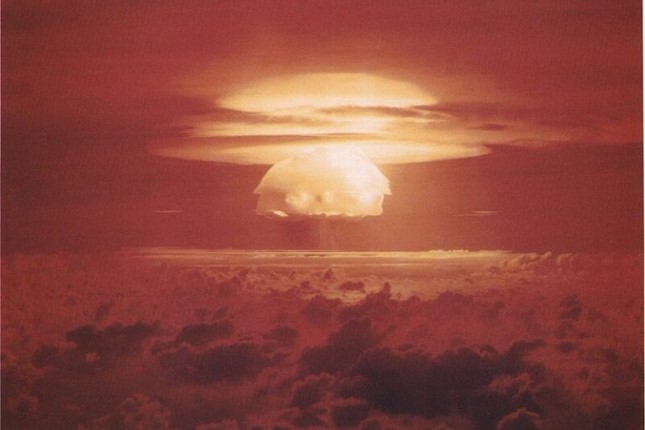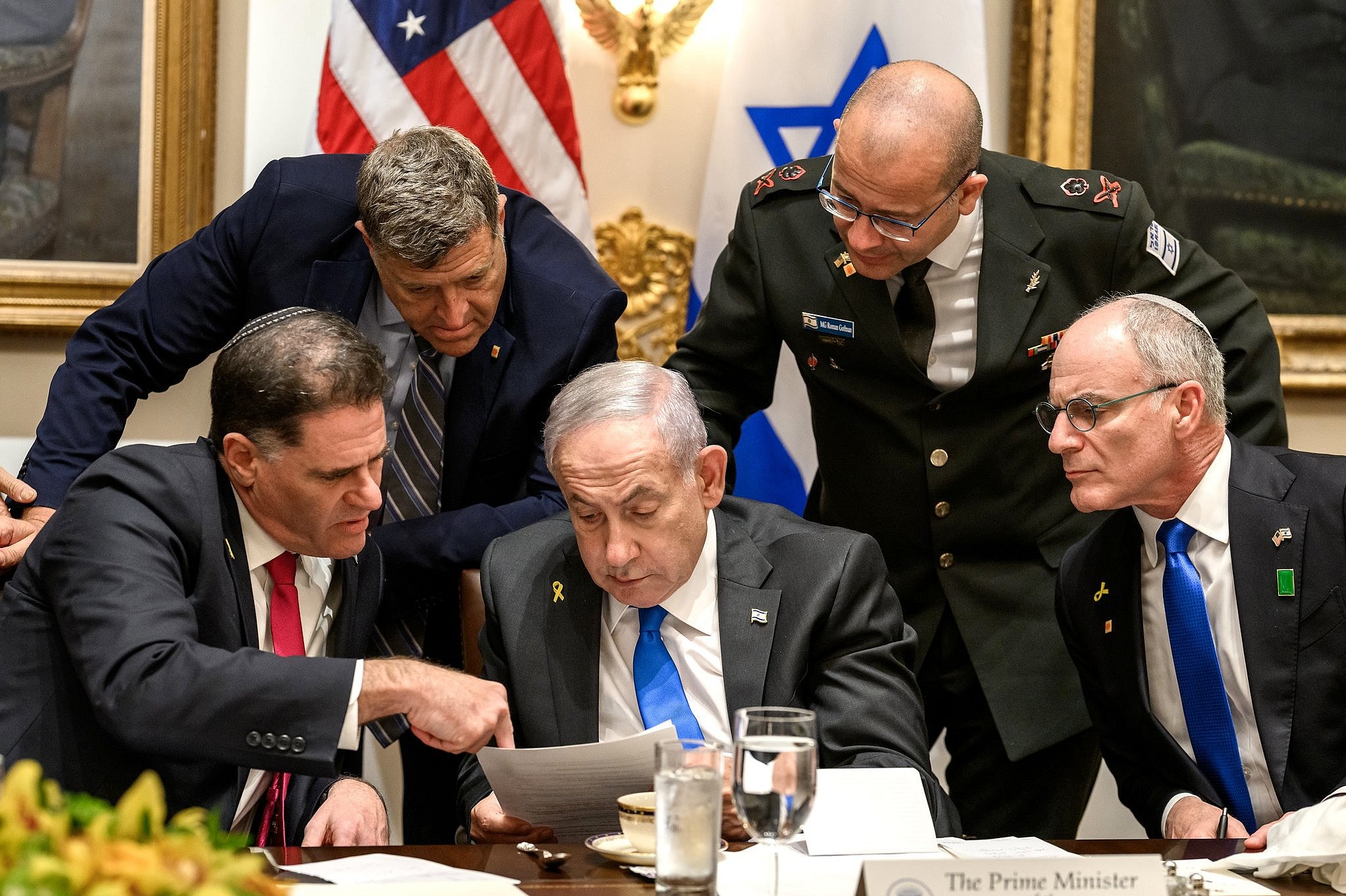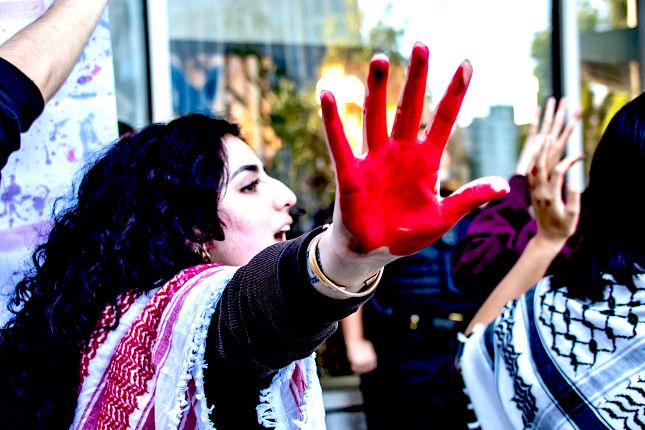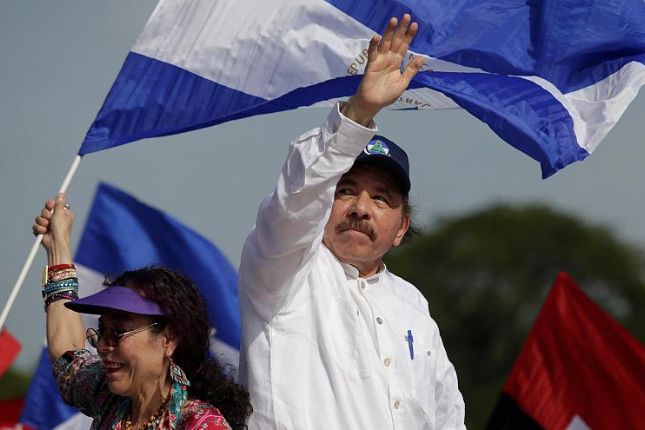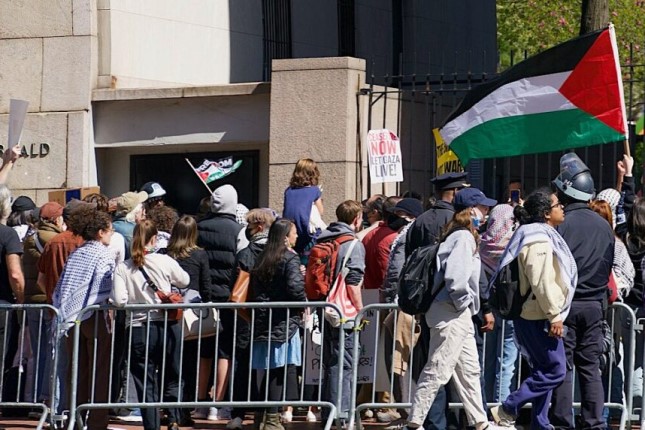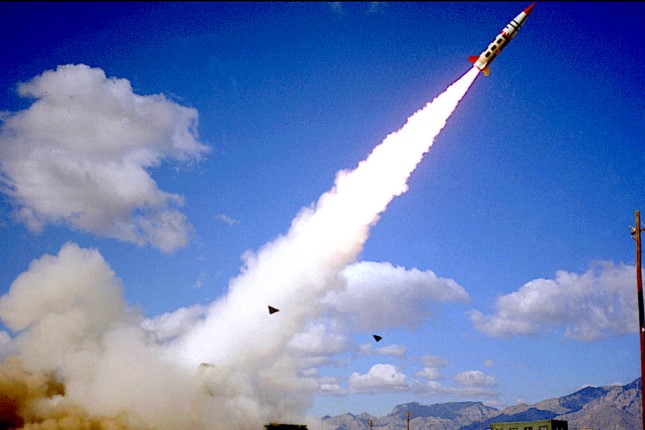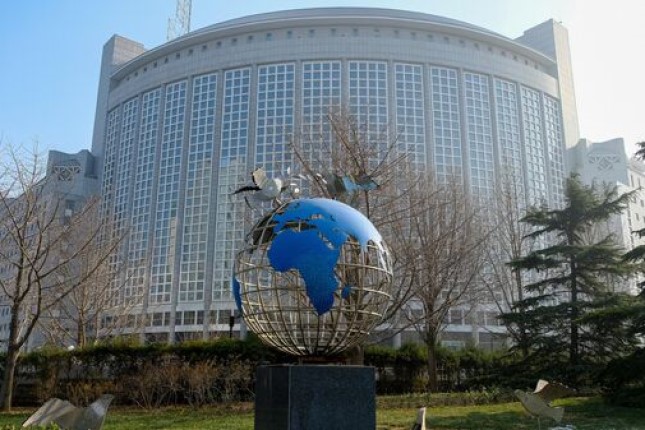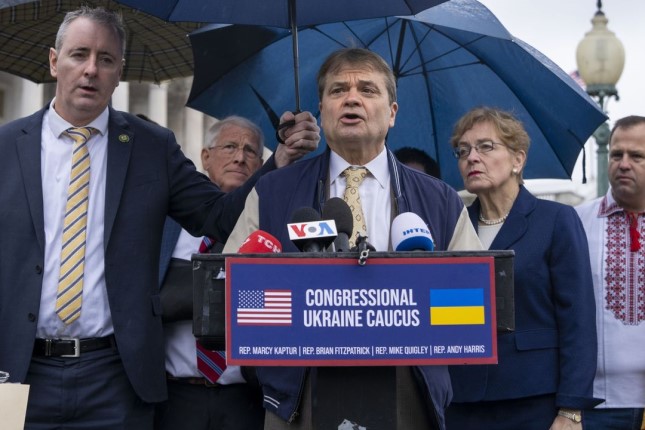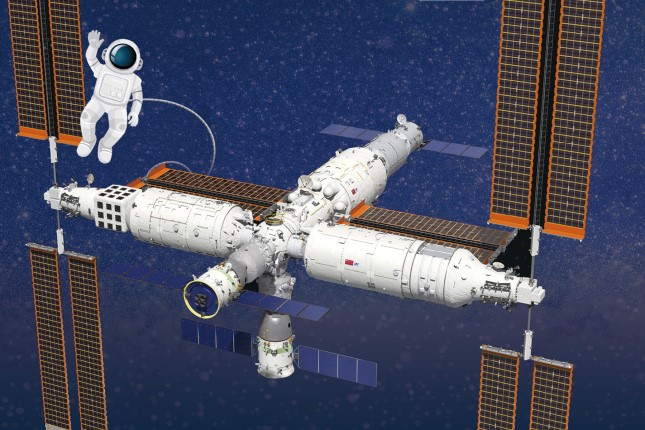The Marshall Islands is seeking more compensation from the US for the health and environmental damages caused by US nuclear testing as part of negotiations to extend a deal that gives the US military access to the Pacific Island nation.
Between 1946 and 1958, the US detonated 67 nuclear bombs on or above the Marshall Islands, including Castle Bravo, the largest-ever nuclear weapons test conducted by the US. The US agreed to give the Marshall Islands $150 million in the 1980s and insists the funds were a “final settlement” for the issue, but the amount fell well short of what is needed to clean up all of the radioactive debris.
Marshall Islands Foreign Minister Jack Ading testified before the Senate Committee on Energy and Natural Resources last week and called for more compensation from the US to renew the agreement with his country, known as the Compact of Free Association (COFA).
The US has COFAs with the Marshall Islands, Micronesia, and Palau. Renewing the agreements is key to the US strategy against China in the region because it not only gives the US military access to the Pacific Island nations but allows the US to deny other militaries access to the area.
Joseph Yun, the US envoy to negotiate the COFAs, has said the US reached a deal with Micronesia and Palau, but the Marshall Islands is still holding out. The US has offered the Marshall Islands $2.3 billion in assistance over 20 years and a $700 million trust fund. But Ading said his country is seeking more compensation and detailed some of the horrors the Marshallese have faced due to US nuclear tests.
Discussing the Castle Bravo test, which took place in 1954, Ading said US military officials “learned that a change in wind patterns threatened to bring fallout to inhabited atolls that had not been evacuated. They went ahead with the test anyway without warning the islanders, who were blanketed in radioactive fallout and had no idea what it was or that it was dangerous.”
Rongelap Atoll was one of the islands covered in radioactive fallout, and Ading said that as a result, 70% of the atoll’s children under 10 developed thyroid tumors. Many women of several of the affected atolls later “gave birth to babies who resembled jellyfish and peeled grapes.”
The US evacuated Rongelap Atoll a few days after the Castle Bravo test but let the residents return three years later, knowing that the area was still heavily contaminated. In 1956, Merrill Eisenbud, a US Atomic Energy Agency official at the time, said that it would be “interesting” to see how the radiation affected the people of Rongelap Atoll.
“It would very interesting to go back and get good environmental data… so as to get a measure of the human uptake, when people live in a contaminated environment … Now, data of this type has never been available …While it is true that these people do not live, I would say, the way Westerners so, civilized people, it is nevertheless also true that they are more like us than the mice,” Eisenbud said.
A previous COFA reached between the US and the Marshall Islands established a nuclear claims tribunal, which eventually dissolved due to a lack of funding. But while it existed, the tribunal ruled that the US needed to pay billions in compensation to the Marshall Islands.
According to Ading, the total amount of unpaid damage awards issued by the tribunal is more than $3 billion. “The US has not come close to properly compensating the Marshallese people for the damage caused by the US nuclear testing program,” he said.
Photo: The Castle Bravo blast © US Department of Energy.
Source: AntiWar.
